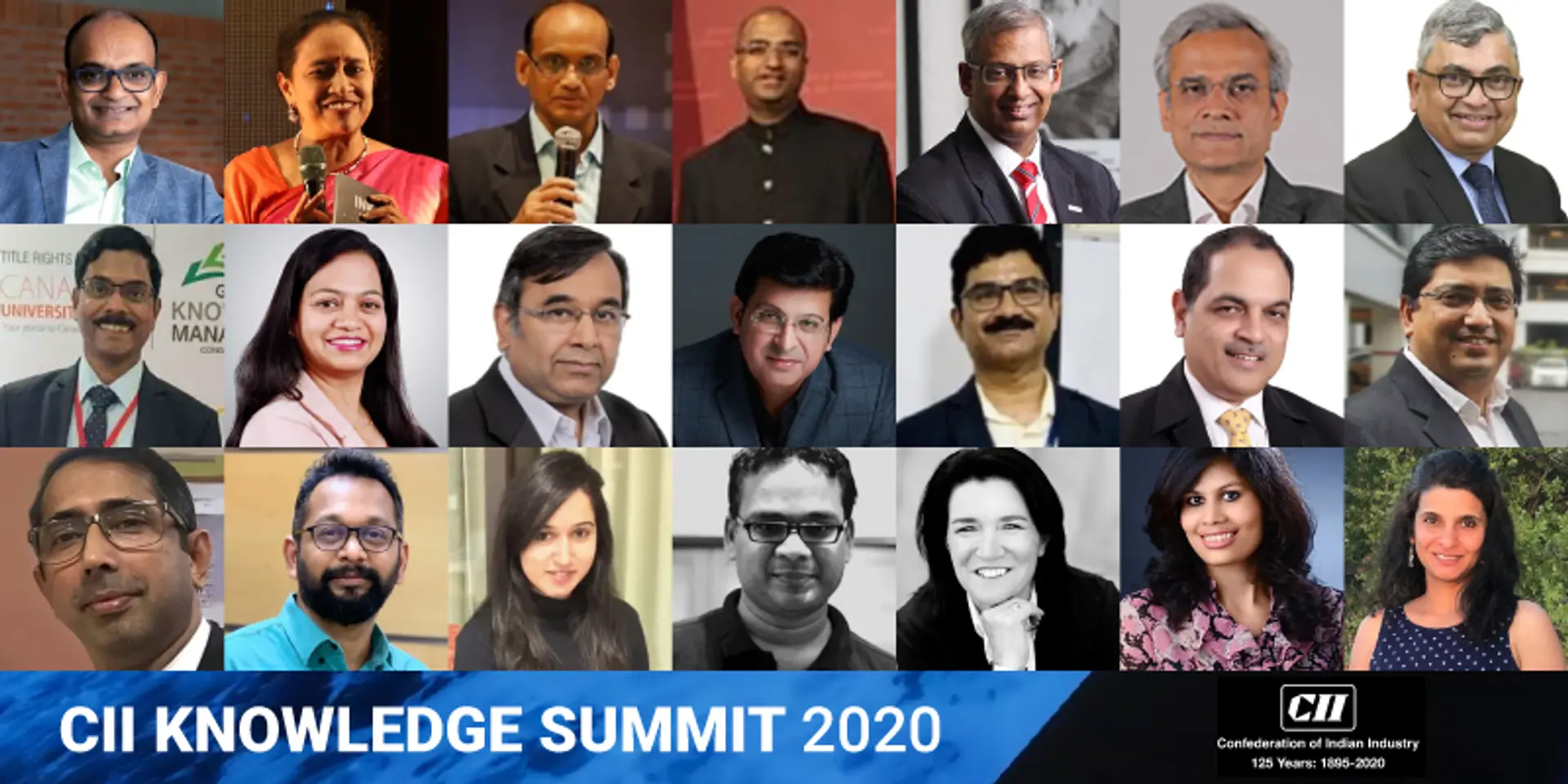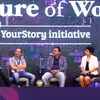Knowledge management in the era of AI: CII Global Knowledge Virtual Summit 2020 showcases trends and impacts
In a series of preview articles on CII’s upcoming annual summit, we share insights on organisational knowledge flows, tech tools, and business impacts.
While many annual conferences have been cancelled or postponed to 2021 due to the COVID-19 crisis, others are being held online.
This year, CII’s annual knowledge summit — scheduled for July 6-8 — is also going online, and is titled CII Global Knowledge Virtual Summit 2020: Knowledge in the Age of Artificial Intelligence.
Earlier editions of the conference were called CII Knowledge Management Summit.
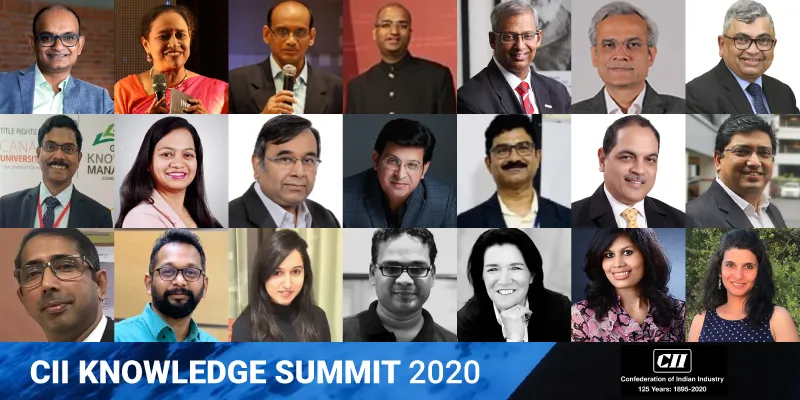
The annual summits promote the harnessing of knowledge and intellectual capital via learning cultures, collaborative ecosystems, and leadership commitment. The awards ceremony for the Most Innovative Knowledge Enterprise (MIKE) will also be held virtually.
See Part I and Part II of YourStory’s articles on the 2019 summit, for insights on digital transformation, knowledge communities, and business impacts from around the world. The conference is also supported by the Knowledge Management Global Network (KMGN), an alliance of KM professional societies from India, Australia, Thailand, Singapore, Hong Kong, Russia, USA, France, South Africa, Israel and Japan.
The knowledge movement continues to gather steam in countries around the world, with particular urgency in the wake of the COVID-19 pandemic to speed up effective knowledge-sharing across sectoral and national boundaries. In this series of preview articles, YourStory presents insights from the speakers and organisers of the CII summit, as well as experts from KMGN.
Business impacts of knowledge sharing
Effective knowledge management can improve productivity, risk management, and innovation. This can be seen in specific metrics for reduced project effort, increased efficiency, speedier ideation, better employee engagement, and more revenue growth.
“Reuse of design and code components in our application development projects led to direct savings of 5 to 50 percent of total project effort,” explains Ved Prakash, Chief Knowledge Officer of Trianz, in a chat with YourStory. This saving was utilised between additional testing, passing it on to the client and adding to project profitability.
In another example, the establishment of a knowledge base in ticketing systems for application support led to ticket resolution times dropping by 30 to 70 percent. “The team was able to pick up more tickets in the same time period, also leading to increased billing and customer satisfaction,” Ved adds.
As a third example, he cites a ‘Designathon’ that was conducted in the company. “More than 100 ideas were submitted, of which 24 were shortlisted for the next stage. Several of them led to an immediate impact on work being done for the clients, and created new revenue streams,” he explains.
A range of other KM success stories are also shared by Balaji Iyer, Director of Knowledge Management and Enterprise Transformation at Grant Thornton. “When we implemented our firm-wide Digital Workspace, it resulted in a 99 percent increase in employee engagement with the workspace, with employees across levels praising its convenience and efficiency,” he explains.
Grant Thornton’s KM programmes are closely embedded alongside its business processes. “Thanks to these programmes, the firm has won multiple clients netting over millions of dollars. In fact, at one point in time, business areas that were serviced through a formal KM program reported a four percent higher revenue growth than areas that were still adopting KM,” Balaji says.
“The value of a centralised KM function helping identification and opening up of knowledge silos, even if they need to be partially secured, cannot be overemphasised,” he adds. The firm’s KM team does a lot of work for the government and public sector, where information cannot freely travel across the organisation.
“Yet, we are helping them move forward with knowledge sharing. We’re keeping content secured if it truly needs to be, but also we’re integrating it into the larger framework of Canvas, our digital workspace,” Balaji explains. This can help end-users with discovery if they have the right security access.
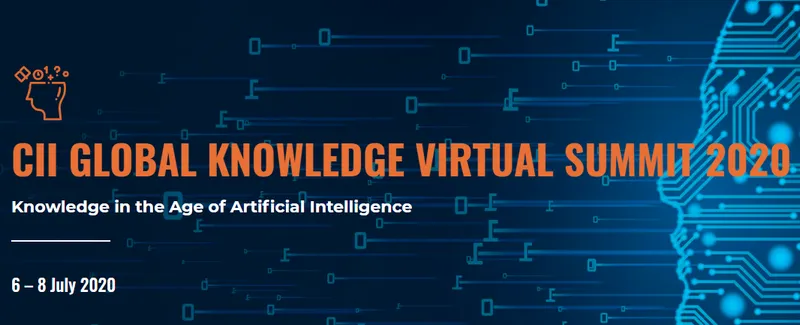
Knowledge-sharing was a key contributor in Singapore’s development of a test for the COVID-19 antibodies, explains Rajesh Dhillon, President, Knowledge Management Society (KMS), Singapore. KMS has developed a framework for the Knowledge-Ready Organisation (KRO), based on maturity levels along with six parameters: strategy, leadership, culture, process, technology, and impact.
Other KM benefits in the area of content and collaboration were cited by Moria Levy, CEO, ROM Knowledgeware. For example, Phoenix Insurance Israel replaced seven different sources of documentation by one unified source. “This enabled better orientation, better understanding, and higher levels of usage,” she explains.
Teva Pharmaceuticals developed a synchronised ecosystem of 46 commercial websites of the company, for various countries in which it operates. “Every country has its uniqueness better fitting the value proposition to its customers,” Moria says. Effective governance and distribution of information originated in headquarters ensuring smooth flow and synchronisation of all sites.
Jerusalem Municipality’s Social Affairs Division applied KM tools for structuring the debriefing process and embedding a full life-cycle methodology. “This led to less recurring problems, more sharing, and learning one from another’s knowledge and success,” Moria adds.
Another example of effective KM in business conglomerates was cited by Manoj Hariharan, Chief Knowledge Officer at Bosch Engineering and Business Solutions. “An engineer in our home appliances company was looking for research in reducing the noise levels of the washing machine motor. Reviews in Bosch follow a systematic approach called DRBFM – Design Review Based on Failure Modes,” he explains.
The designer found that an automotive company had done the same research for motors used in window-lifters. “The management then set up an agile team with members from both companies to work together, and within a few months they had a breakthrough,” Manoj explains. Such case studies are bound to increase as we enter the era of artificial intelligence (AI) and machine learning (ML), he adds.
Bosch recently redefined its identity as a Leading IoT Company. “This requires our mechanical engineers to take a leap into software technologies. To reskill the workforce and achieve the competitive advantage, we will need KM along with the training departments. In my assessment, KM 3.0 will be all about reskilling on the job,” Manoj predicts.
In addition to productivity, KM can boost innovation as well as retention of expert knowledge, according to Vincent Ribière, Managing Director and Co-founder of the Institute for Knowledge and Innovation Southeast Asia (IKI-SEA), hosted by Bangkok University.
“KM can facilitate knowledge transfer across various generations of employees through communities of practice. KM can help ensure knowledge retention to avoid business discontinuity when experts leave the organisation. Finally, KM can also strengthen an organisation’s innovation capability,” Vincent explained.
A range of experts have covered the knowledge impacts of AI in business, ranging from workflow transformation and data readiness to business models and strategy. For example, see my book reviews of Prediction Machines, A Human's Guide to Machine Intelligence; Machine, Platform, Crowd; The AI Advantage; and Human + Machine.
Trends in the knowledge movement
A number of speakers identified emerging trends in the field of KM. Most notably, these include the rise of AI, ML, and augmented reality (AR). Workflow redesign, enterprise social networks, and inter-organisational knowledge flows are other trends to watch.
“Artificial Intelligence and Augmented Reality will become much more ubiquitous,” observes Gopichand Katragadda, Chairman, Global Knowledge Summit 2020, and Founder and CEO at . AI will play a significant role in the description, curation, maintenance, validation, discoverability, accessibility, and distribution of knowledge. AR will make two- way interactions between experts and field workers, combined with knowledge bases, more intuitive.
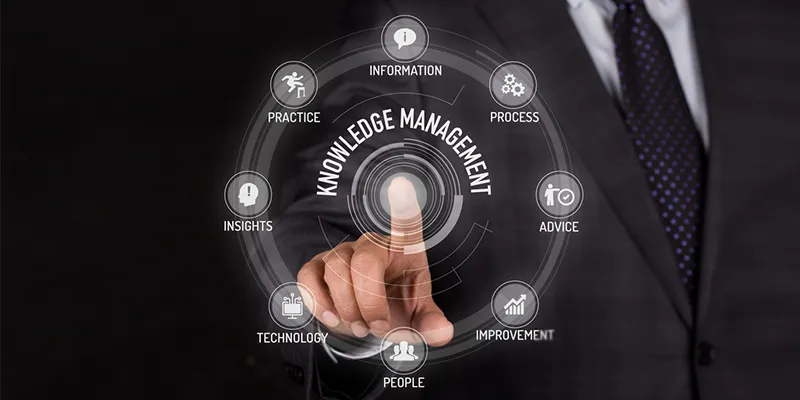
“AI and ML will become mainstream in unifying knowledge across the entire spectrum of the organisation, internal and external,” adds Ved Prakash of Trianz. Knowledge-on-demand will acquire new dimensions with contextual ability getting enhanced manifold. “More and more knowledge will be crowd-sourced, just like the open-source movement. Voice assistants will replace the search bar as the primary interface,” he adds.
“In the short to medium term, bundled products that integrate online collaboration spaces, unified communications, and core business processes are emerging as a notable trend,” observes Balaji Iyer of Grant Thornton.
“In the long term, AI-powered KM solutions will make it feasible to harness knowledge at critical handshake points,” he adds. These handshake points appear between humans and bots, between organisations and their gig workers, between core business teams and partner ecosystems.
“These are areas that require a fresh KM approach, as the dynamics and actors in the mix are changing rapidly,” Balaji explains. Unfortunately, most firms do not have a playbook for this as yet.
AI and blockchain are other emerging trends in the world of KM, according to Mohamad Faiz Selamat, Vice President, Knowledge Management Society (Singapore). “As access to knowledge becomes more prevalent, it becomes more difficult to verify information sources and ensure that statements made are proven and substantiated,” he explains.
AI and blockchain can help verify information sources and facts in this regard. “This will be crucial to ensure users are well-informed of information sources so that they will be able to discern its credibility,” he says.
“Another possible emerging trend would be the increased role of KM in transforming public education systems,” Mohamad adds. Home-based online learning can deliver customised education based on prescribed levels and pace. KM can help in areas related to content, curriculum design, and pedagogy.
The rise of enterprise social networks is another trend identified by Refiloe Mabaso, Deputy Chairperson of Knowledge Management South Africa (KMSA). She is also Senior Manager for Information and KM at Air Traffic and Navigation Services, South Africa. Digital workplaces and digital transformation of business will be amplified thanks to reliable and effective web conferencing, she adds.
“While it’s more of a huge gap at the moment, as the gap begins to close it will become a huge trend, and that is in the area of ontology,” explains Arthur Murray, CEO of Applied Knowledge Sciences, in Washington, DC.
Most, if not all, efforts to create multi-platform visual machine-readable ontology editors have failed miserably, he laments. “Once this challenge is cracked, the floodgates will open,” he predicts. An ontology is generally regarded as a machine-readable concept map or graph, with descriptions and links to related objects.

AI and KM will help design new kinds of work processes and roles, adds Moria Levy of ROM Knowledgeware. “Working agile will also bring more and faster value propositions to organisations. Ultimately, knowledge capabilities should be extended for all. Leveraging the public’s attitude to harnessing knowledge and information should become feasible across countries, ages and races,” she urges.
“Leveraging visualisation technologies such as AR/VR along with AI can have a significant impact on knowledge absorption and retention,” says Zeba Khan, Managing Partner, Xenvis Solutions.
“In the coming years as the reliance on AI and ML increases, gamification will play a significant role in balancing out the human element in the overall business processes,” adds Rajib Chowdhury, Founder of The Gamification Company.
“With the rise of AI and the new ISO Knowledge Management Standard, it looks like KM is going to gain even more interest from organisations,” Vincent Ribière of IKI-SEA sums up.
Edited by Saheli Sen Gupta


